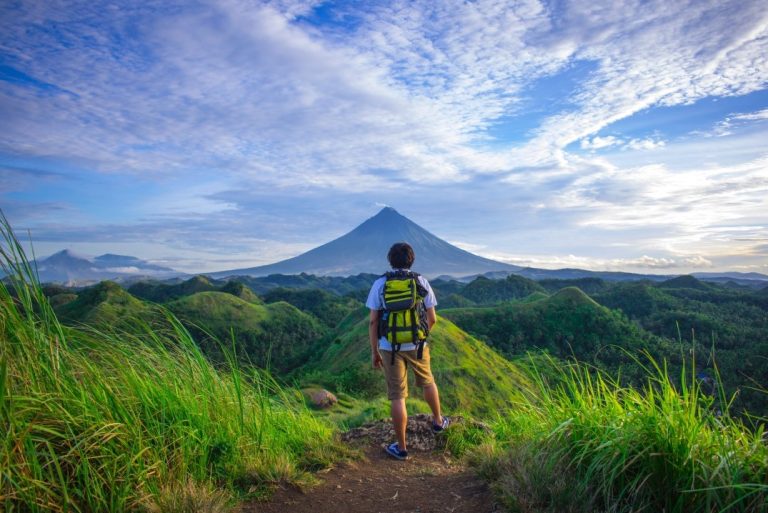The Mental Health Benefits of Adventure Travel
In our fast-paced, stress-filled world, finding ways to maintain and improve mental health is more important than ever. Adventure travel, which combines physical activity with the excitement of exploring new environments, offers a unique and powerful way to boost mental well-being. This guide delves into the myriad ways adventure travel can benefit your mental health and provides tips on how to maximize these benefits on your next trip.
What is Adventure Travel?
Adventure travel involves exploring remote, exotic, or challenging locations while engaging in physical activities such as hiking, climbing, kayaking, or scuba diving. It goes beyond traditional tourism by immersing travelers in nature and often pushing them out of their comfort zones.
How Adventure Travel Enhances Mental Health
1. Reduces Stress and Anxiety
One of the most immediate benefits of adventure travel is its ability to reduce stress and anxiety. Immersing yourself in nature and engaging in physical activities can lower cortisol levels (the body’s primary stress hormone) and promote a sense of calm.
- Nature’s Calming Effect: Studies have shown that spending time in nature reduces stress and enhances overall mood. The sights, sounds, and smells of natural environments help to calm the mind and body.
- Physical Activity: Activities like hiking, biking, and climbing release endorphins, the body’s natural stress relievers, promoting a sense of well-being.
2. Boosts Mood and Happiness
Adventure travel can significantly boost your mood and overall happiness. The combination of physical exertion, new experiences, and the beauty of natural landscapes triggers the release of dopamine, a neurotransmitter associated with pleasure and reward.
- Achievement and Satisfaction: Conquering a challenging hike or reaching the summit of a mountain provides a sense of achievement and satisfaction, enhancing self-esteem and happiness.
- Connection to Nature: Being in natural settings can enhance feelings of joy and contentment, providing a much-needed break from the urban environment.
3. Enhances Cognitive Function
Engaging in new and challenging activities during adventure travel can improve cognitive function. Learning new skills, navigating unfamiliar terrains, and problem-solving in real-time stimulate the brain and enhance mental agility.
- Neuroplasticity: Adventure travel can promote neuroplasticity, the brain’s ability to adapt and form new neural connections, which is crucial for cognitive health.
- Mindfulness and Presence: The need to focus on the present moment while engaging in adventure activities fosters mindfulness, improving attention and reducing symptoms of anxiety and depression.
4. Promotes Social Connections
Adventure travel often involves group activities, fostering social interactions and connections. Building relationships and sharing experiences with others can significantly enhance mental health.
- Social Support: Strong social connections provide emotional support, reduce feelings of loneliness, and improve overall mental well-being.
- Shared Experiences: Sharing adventure travel experiences with others creates lasting bonds and memories, enhancing feelings of belonging and happiness.
5. Improves Resilience and Coping Skills
Facing and overcoming challenges during adventure travel builds resilience and coping skills. These experiences teach valuable lessons about perseverance, adaptability, and problem-solving.
- Overcoming Fear: Conquering fears and pushing personal boundaries can enhance confidence and self-efficacy.
- Adaptability: Dealing with unexpected situations during travel improves adaptability and coping mechanisms, essential for managing stress in everyday life.
Tips for Maximizing Mental Health Benefits
1. Choose the Right Adventure
Select an adventure that matches your interests and fitness level. Whether it’s a gentle hike through the countryside or a challenging mountain climb, ensure it’s something you’ll enjoy and find rewarding.
2. Be Present
Focus on the present moment and immerse yourself in the experience. Practice mindfulness by paying attention to your surroundings, your breathing, and your body’s movements.
3. Disconnect from Technology
Take a break from digital devices to fully engage with nature and the adventure. This digital detox can enhance relaxation and reduce stress.
4. Travel with Others
Share the adventure with friends, family, or a group. Social interactions and shared experiences amplify the mental health benefits of adventure travel.
5. Reflect and Journal
Take time to reflect on your experiences and journal your thoughts and feelings. This practice can help solidify the positive effects of the adventure on your mental health.
Popular Adventure Travel Destinations
1. Patagonia, Argentina and Chile
Known for its stunning landscapes and diverse activities such as trekking, kayaking, and climbing.
2. New Zealand
Offers a wide range of adventure activities, from bungee jumping and skydiving to hiking and mountain biking.
3. Iceland
Famous for its dramatic scenery, including glaciers, volcanoes, and hot springs, perfect for hiking, ice climbing, and exploring.
4. Norway
With its fjords, mountains, and coastline, Norway is ideal for skiing, hiking, and kayaking adventures.
5. Colorado, USA
A haven for outdoor enthusiasts with opportunities for hiking, rock climbing, skiing, and white-water rafting.
Conclusion
Adventure travel is a powerful way to enhance mental health by reducing stress, boosting mood, improving cognitive function, fostering social connections, and building resilience. By choosing the right adventure, being present, disconnecting from technology, traveling with others, and reflecting on your experiences, you can maximize these benefits and return home rejuvenated and mentally stronger. So, pack your bags, lace up your boots, and set out on an adventure that will elevate both your physical and mental well-being.



